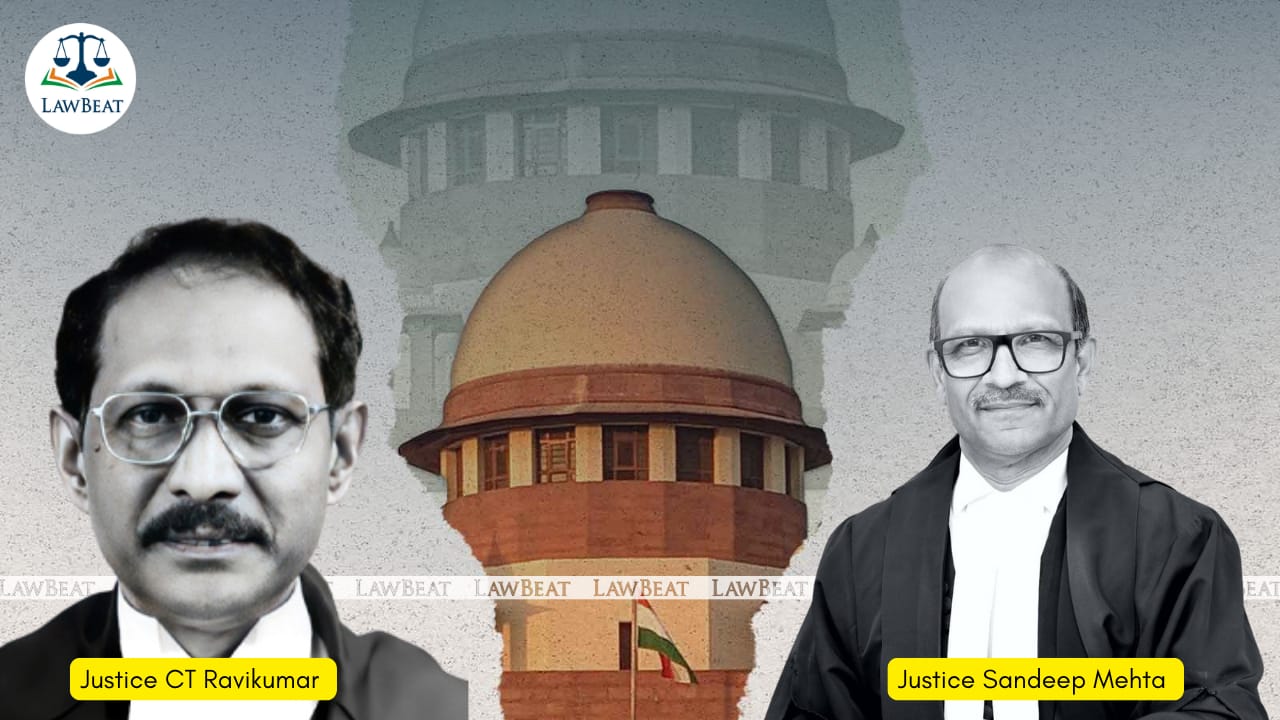Bail Conditions Should Secure Accused’s Presence, Not Impede Investigation, Trial: SC

Court said the conditions imposed clearly tantamounted to deprivation of civil rights, rather than measures to ensure the accused's presence during trial
The Supreme Court on October 25, 2024, observed that the court's discretion in imposing conditions for bail must be guided by the need to facilitate the administration of justice, secure the accused's presence, and prevent the misuse of liberty to impede the investigation or obstruct justice.
A bench of Justices C T Ravikumar and Sandeep Mehta set aside the Madhya Pradesh High Court's order of July 25, 2024, which granted bail to appellants Ramratan alias Ramswaroop and another, subject to certain conditions, including the removal of a wall at their expense and also directed the state government to hand over the possession of the disputed property to the complainant (objector before the High Court).
"The High Court has clearly exceeded its jurisdiction... by imposing the conditions of demolishing the wall at the expense of the appellants and handing over the possession of the disputed property to the complainant," the bench said.
The bench emphasised that the fundamental purpose of bail is to ensure the accused's presence during the investigation and trial so any conditions imposed must be reasonable and directly related to this objective.
"In this case, the conditions imposed clearly tantamount to deprivation of civil rights, rather than measures to ensure the accused's presence during trial," the bench added.
The court also termed as total lawlessness by the police in taking possession of immovable property here.
The appellants were arrested on April 27, 2024 on the basis of FIR, alleging that the accused, along with others, had forcefully entered into a property of the complainant after breaking a wall and assaulted his family members.
Assailing the High Court's order, the appellants submitted that the conditions imposed by it were excessive and beyond the scope of bail proceedings. They said the High Court exceeded its jurisdiction under Section 437(3) and Section 439 of the Code of Criminal Procedure, 1973 by imposing onerous conditions that goes beyond ensuring the presence of the accused during investigation and trial.
They also submitted that the High Court's order to hand over the keys of the disputed property to the complainant had prejudiced the ongoing Civil Suit between the State of Madhya Pradesh and the complainant, his wife, and Mahant Pushpraj.
The state counsel affirmed that a Civil Suit was pending between the State and the complainant, his wife, and Mahant Pushpraj in which the State had sought a declaration of title and permanent injunction.
While deciding the bail application, the High Court ought not to have ventured into the civil dispute inter se between the parties, as the order to deliver the possession of the property to the complainant (who is the defendant in the pending suit for title declaration), is bound to have prejudicial consequences on the civil rights of the parties, the state counsel said.
The complainant, on the other hand, contended that the appellants had forcibly broken into his premises, being the registered owner of the property and caused injuries to him and his family members, the High Court was fully justified in imposing the conditions.
The Supreme Court examined whether the High Court exceeded the jurisdiction conferred upon it by Section 439 CrPC by imposing onerous and unreasonable conditions unrelated to the grant of bail, specifically, the direction for removal of the wall at the expense of the appellants and handing over possession of the disputed property to the complainant.
The bench noted that while the bail application of the appellants was under consideration, it was the police who took possession of the keys of the immovable property under an alleged voluntary application filed by the Mahant of Ram Suchi Sampradaya.
"We believe that this action by the police to take possession of immovable property reflects total lawlessness. Under no circumstances, can the police be allowed to interfere with the possession of immovable property, as such action does not bear sanction by any provision of law," the bench said.
The court while setting aside the conditions impugned also clarified that none of the observations made in the High Court's order, or this order should prejudice the rights of the parties in the pending civil suit.
Case Title: Ramratan alias Ramswaroop Vs The State of Madhya Pradesh
